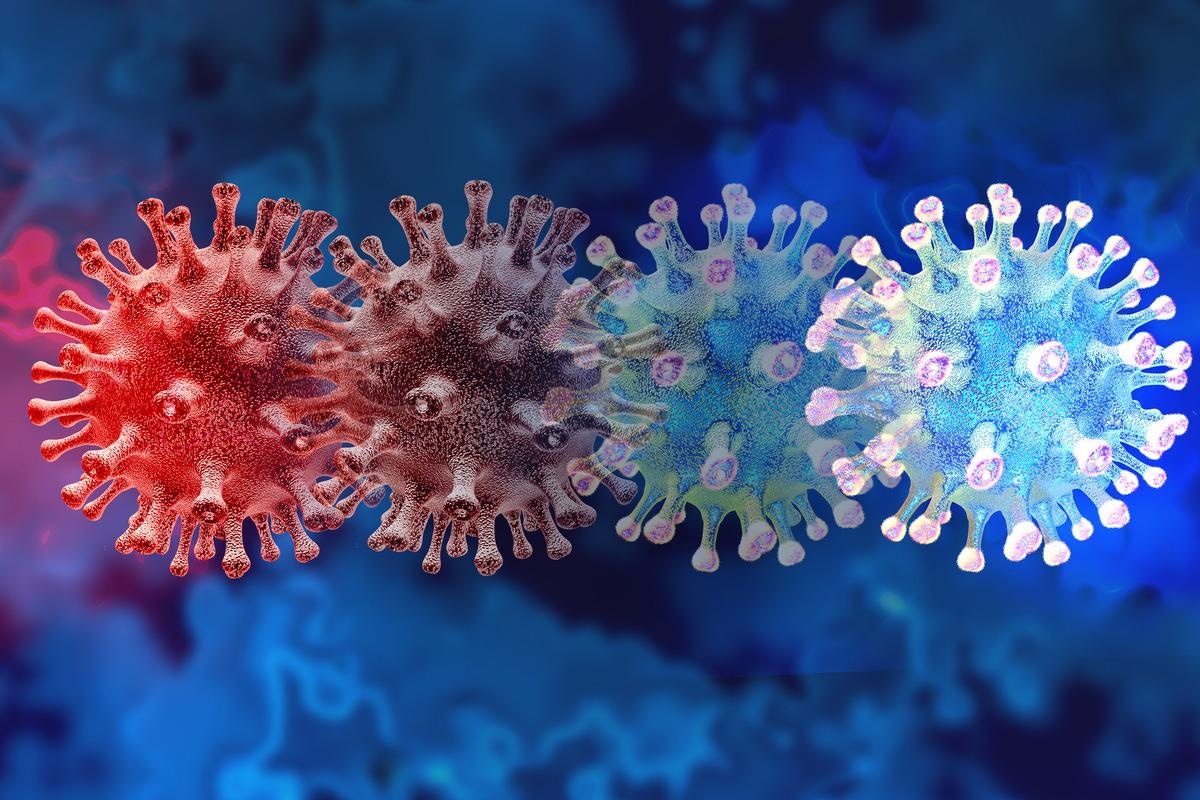A team of scientists from South Africa has recently demonstrated that individuals infected with the omicron variant of severe acute respiratory syndrome coronavirus 2 (SARS-CoV-2) are less likely to develop severe coronavirus disease 2019 (COVID-19) compared to those infected with the beta or delta variant.
The study is currently available on the Lancet preprint server.
 Study: Clinical Severity of COVID-19 Patients Admitted to Hospitals in Gauteng, South Africa During the Omicron-Dominant Fourth Wave. Image Credit: Lightspring/Shutterstock
Study: Clinical Severity of COVID-19 Patients Admitted to Hospitals in Gauteng, South Africa During the Omicron-Dominant Fourth Wave. Image Credit: Lightspring/Shutterstock
Background
The omicron variant of SARS-CoV-2 was first detected in the Gauteng Province, South Africa. The whole genome sequencing analysis has described that the variant is heavily mutated, with almost 40 mutations specifically in the spike protein. Given the high number of mutations and significantly increased transmissibility, the World Health Organization (WHO) has designated omicron as the variant of concern (VOC).
In South Africa, about 81% and 96% of all COVID-19 cases in November and December, 2021, have been identified as omicron infections, respectively. This has marked the beginning of fourth COVID-19 wave in South Africa. During the first, second, and third waves, the dominant variants were the original SARS-CoV-2 strain with D614G mutation, beta variant, and delta variant, respectively. Regarding vaccine coverage, about 31% of adult population in Gauteng had been vaccinated before the beginning of the fourth wave.
Preliminary studies investigating viral transmission dynamics have indicated that the omicron variant has significantly higher infectivity than the previously dominant delta variant. Moreover, the variant is highly capable of evading host immune responses and causing reinfections and vaccine breakthrough infections. However, it is still not clear whether the variant is more virulent than previously circulating VOCs.
In the current study, the scientists have compared the hospitalization rate and disease severity among beta-infected, delta-infected, and omicron-infected patients who had been hospitalized during the second, third, and fourth pandemic waves, respectively.
Study design
The study included COVID-19 cases detected in the Gauteng province, South Africa, where the omicron variant was first identified. The cases were selected based on polymerase chain reaction (PCR)-positive and viral antigen-positive results. In addition, information on COVID-19 related hospitalizations was collected via an active surveillance program.
The cases detected during the first four weeks of each pandemic wave were included in the analysis. The proportion of hospitalized cases as well as disease severity during each wave was assessed in the study. The disease severity was defined as development of acute respiratory distress syndrome, requirement of supplemental oxygen, administration of invasive mechanical ventilation, treatment in intensive care unit (ICU), or death.
Important observations
A total of four distinct pandemic waves were observed in the Gauteng province. The waves were separated by intervals of approximately three weeks with low transmission. During the first four weeks of beta-, delta-, and omicron-dominated waves, the number of COVID-19 cases identified was 41,046, 33,423, 133,551, respectively. The induction in cases during the omicron-dominated wave did not cause a concomitant increase in hospitalization. Among identified COVID-19 cases during the second, third, and fourth waves, about 18%, 13%, and 4% were admitted to the hospital, respectively.
Regarding clinical outcomes, about 60% of beta cases, 66% of delta cases, and 28% of omicron cases progressed to severe disease. Specifically, the percentage of patients requiring supplemental oxygen was significantly lower during the omicron-dominated wave compared to that during the beta- and delta-dominated waves. The average duration of hospital stay for beta-infected, delta-infected, and omicron-infected patients was 7 days, 8 days, and 4 days, respectively. Overall, in-hospital patients with omicron infection exhibited 73% less susceptibility to develop a severe disease compared to delta-infected patients.
Among total hospital admissions during the second, third, and fourth waves, about 3.9%, 3.5%, and 17% were children and adolescents, respectively. The proportion of in-hospital patients under the age of 20 years was 7%, 3%, and 6% during the second, third, and fourth waves, respectively. Among these patients, about 22%, 23%, and 20% developed a severe disease during the three consecutive waves.
Study significance
The study reveals that omicron infections in South Africa are associated with lower rates of hospital admissions and lower disease severity compared to beta and delta infections. A relatively lower virulence of the omicron variant might be responsible for a milder infection. However, pre-existing immunity against SARS-CoV-2 from natural infection or vaccination might also play vital roles.
- Jassat W. (2021). Clinical Severity of COVID-19 Patients Admitted to Hospitals in Gauteng, South Africa During the Omicron-Dominant Fourth Wave. The Lancet Preprint. doi: http://dx.doi.org/10.2139/ssrn.3996320 https://papers.ssrn.com/sol3/papers.cfm?abstract_id=3996320
Posted in: Medical Science News | Disease/Infection News
Tags: Acute Respiratory Distress Syndrome, Adolescents, Antigen, Children, Coronavirus, Coronavirus Disease COVID-19, Genome, Hospital, immunity, Intensive Care, Mutation, Oxygen, Pandemic, Polymerase, Polymerase Chain Reaction, Protein, Respiratory, SARS, SARS-CoV-2, Severe Acute Respiratory, Severe Acute Respiratory Syndrome, Spike Protein, Syndrome, Vaccine, Whole Genome Sequencing

Written by
Dr. Sanchari Sinha Dutta
Dr. Sanchari Sinha Dutta is a science communicator who believes in spreading the power of science in every corner of the world. She has a Bachelor of Science (B.Sc.) degree and a Master's of Science (M.Sc.) in biology and human physiology. Following her Master's degree, Sanchari went on to study a Ph.D. in human physiology. She has authored more than 10 original research articles, all of which have been published in world renowned international journals.
Source: Read Full Article
